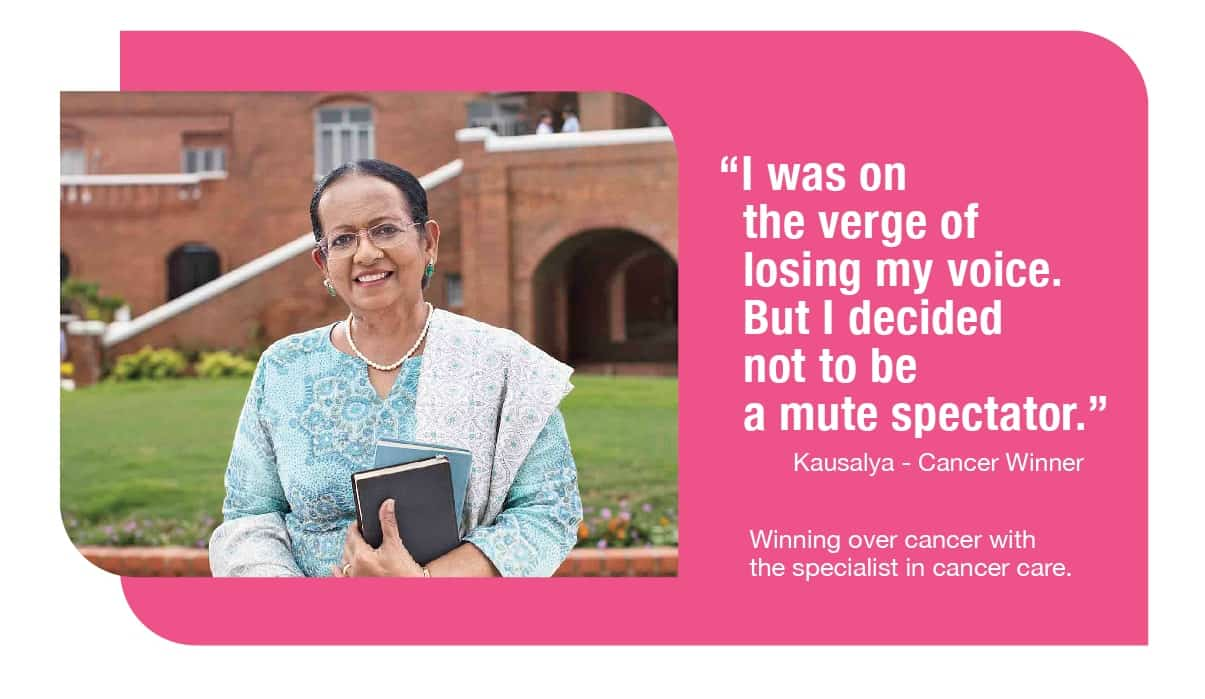
25 Jan, 2022

25 Jan, 2022
Although breast cancer is one of the most common and the most spoken-about cancers, very few are aware of the advancements that have happened in the field of breast cancer management. For example, many think surgery and chemotherapy or radiation therapy are the only treatment options available for breast cancer.
However, this is only partly true.
Today, specialists can plan a patient’s intervention in such a way that the treatments not only precisely target the cancer cells but also come with fewer to zero side effects and help patients show better treatment response and recover at a faster rate with minimal monitoring. Hormone therapy is one such medical intervention for breast cancer, and it has been showing promising results consistently.
As we move on, you can learn about the key aspects of hormone therapy for breast cancers. Since it is a relatively less-known treatment approach, not many patients are aware and trust this therapy to work for them. Here, we answer the five burning questions on hormone therapy for breast cancer.
A few subtypes of breast cancers are hormone-sensitive or hormone dependant. In order words, if we say a tumour is hormone-sensitive, it means that the cells present in this tumour have a special receptor for a particular hormone. When this receptor and the said hormone bind, it results in the growth and spread of cancer cells.
A few breast cancer types need female hormones, namely progesterone or estrogen or both to grow and multiply. According to studies, about 2/3rd of breast cancers need these female hormones for growth. This hormone sensitivity shown by certain breast cancers is harnessed to deliver hormone therapy.Hormone therapy can help in the management of these cancers either by reducing the hormone production or blocking the hormone from binding to the special receptor present on the tumour cell.
However, there is another type of breast cancer known as triple-negative breast cancer, which shows no sensitivity to any hormone; therefore, this type cannot be treated with hormone therapy.
Hormone therapy works via three different mechanisms. There are different drugs used in hormone therapy, and they work by either of the following methods:
Hormone therapy is used along with other treatments too. When used with surgery or radiation therapy, hormone therapy helps in shrinking the tumour. When administered after the main treatment, hormone therapy lowers the risk of relapse. In the case of relapse, hormone therapy might help destroy the cancer cells and prevent them from spreading to other organs. As a palliative therapy, hormone therapy helps in easing pain and other symptoms associated with breast cancer.
Hormone therapy is one of the treatment approaches that precisely target the tumour cells and therefore, it is safe. It is important to note that not all breast cancers can be treated with hormone therapy.
The pros and cons of this treatment approach will be extensively discussed when it is recommended to thepatients.
One of the biggest advantages of hormone therapy is that it causes minimal damage to the surrounding tissues.
As a systemic therapy, it helps in killing cancer cells that are present throughout the body. The side effects associated with hormone therapy are less intense when compared to conventional treatment methods. This makes it a more tolerable treatment method that can be given to those who are unable to undergo chemo or radiation therapy.
There is something called treatment monitoring that is carried out throughout your treatment. Treatment monitoring involves running regular tests to check if the said treatment is helping the specialists reach the treatment goal, which could be remission, shrinking the tumour, delaying the disease progression or symptom relief.
If youre on hormone therapy for breast cancer, you will be asked to undergo certain tests on a regular basis. An examination of the neck, underarm, chest, and breasts is frequently included in routine checkups. You may get regular mammograms, PET CT scans, tests for specific markers, etc., done as ordered by your doctor.
If the results are looking good, your treatment plan will continue as recommended. However, if the results are not as expected, your doctor may recommend a few changes in your treatment plan.
HCG is the best cancer hospital in India to receive hormone therapy for breast cancer as oncologists here focus on delivering patient-centric care that positively impacts both the clinical outcomes and quality of life among patients.
Since hormone therapy interferes with the body’s ability to synthesise hormones, patients may experience a few side effects. However, these vary depending on the intensity of the treatment, age of the patient, stage of cancer and the overall condition of the patient. At times, patients do not experience most of the side effects at all.
Some of the common side effects observed include:
It is important to note that these side effects improve over time, and also, there are some medications available that can help patients cope with these symptoms.
Hair thinning has been reported in breast cancer patients who are on hormone therapy. However, it is not as severe as it happens with chemotherapy. However, in certain cases, hair thinning is seen throughout the treatment, which could be several years. If youre concerned about hair loss and want to know how to manage it, you should talk to your doctor.
This article is authored by Dr. Krithika Murugan, senior consultant – Surgical Oncology, HCG Cancer Centre, Bangalore.
